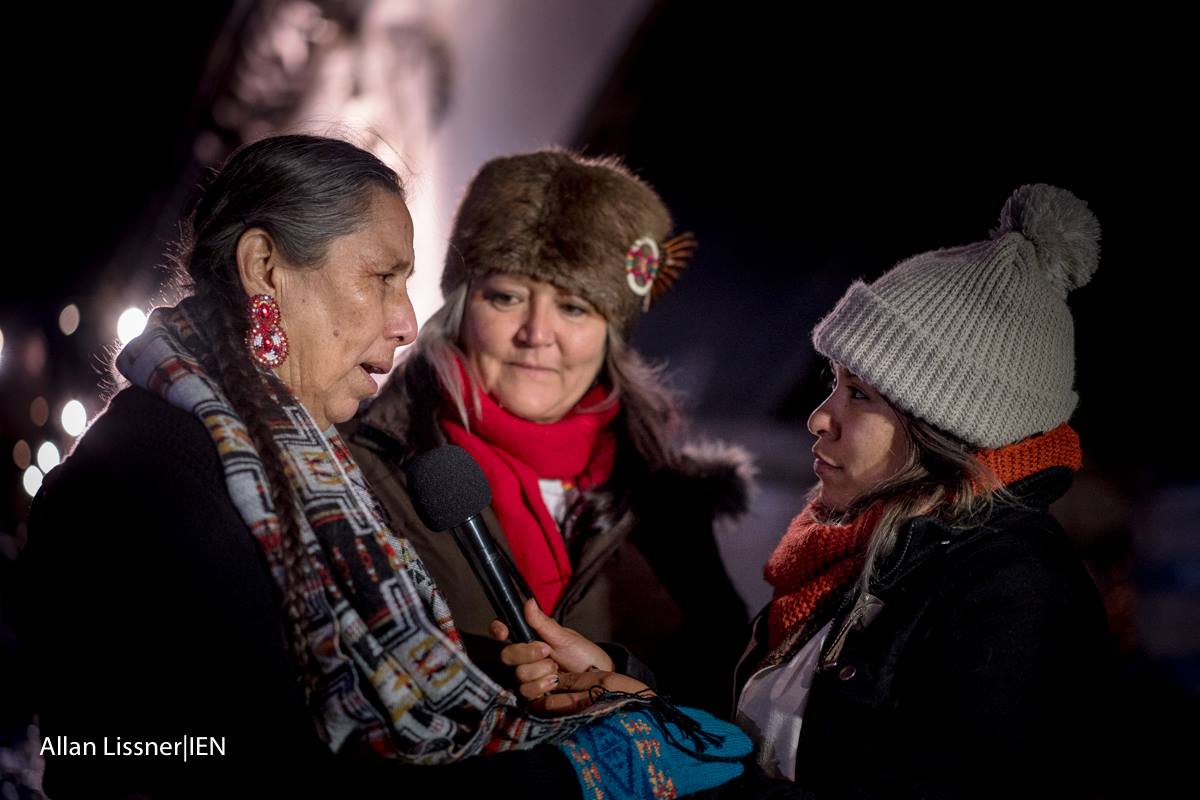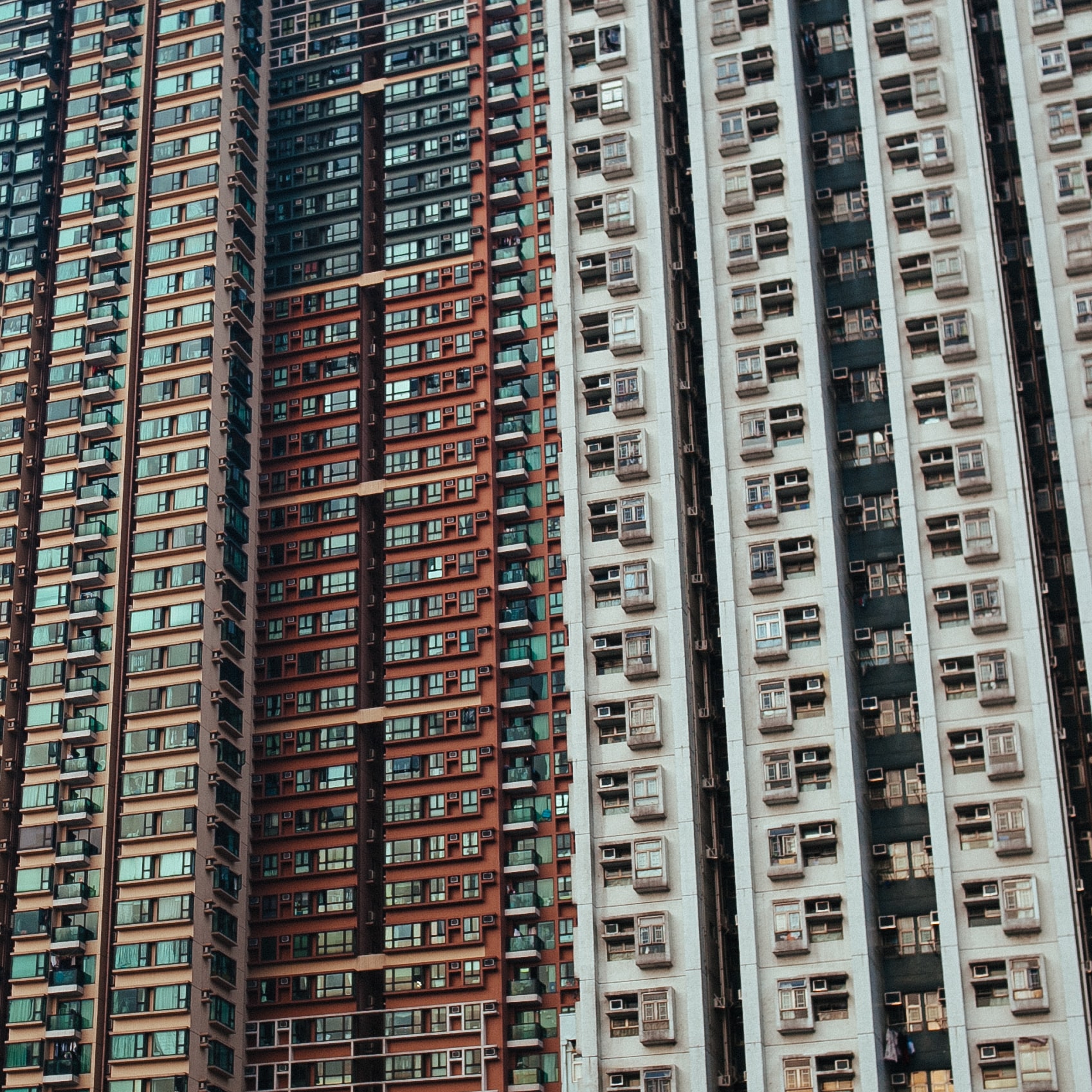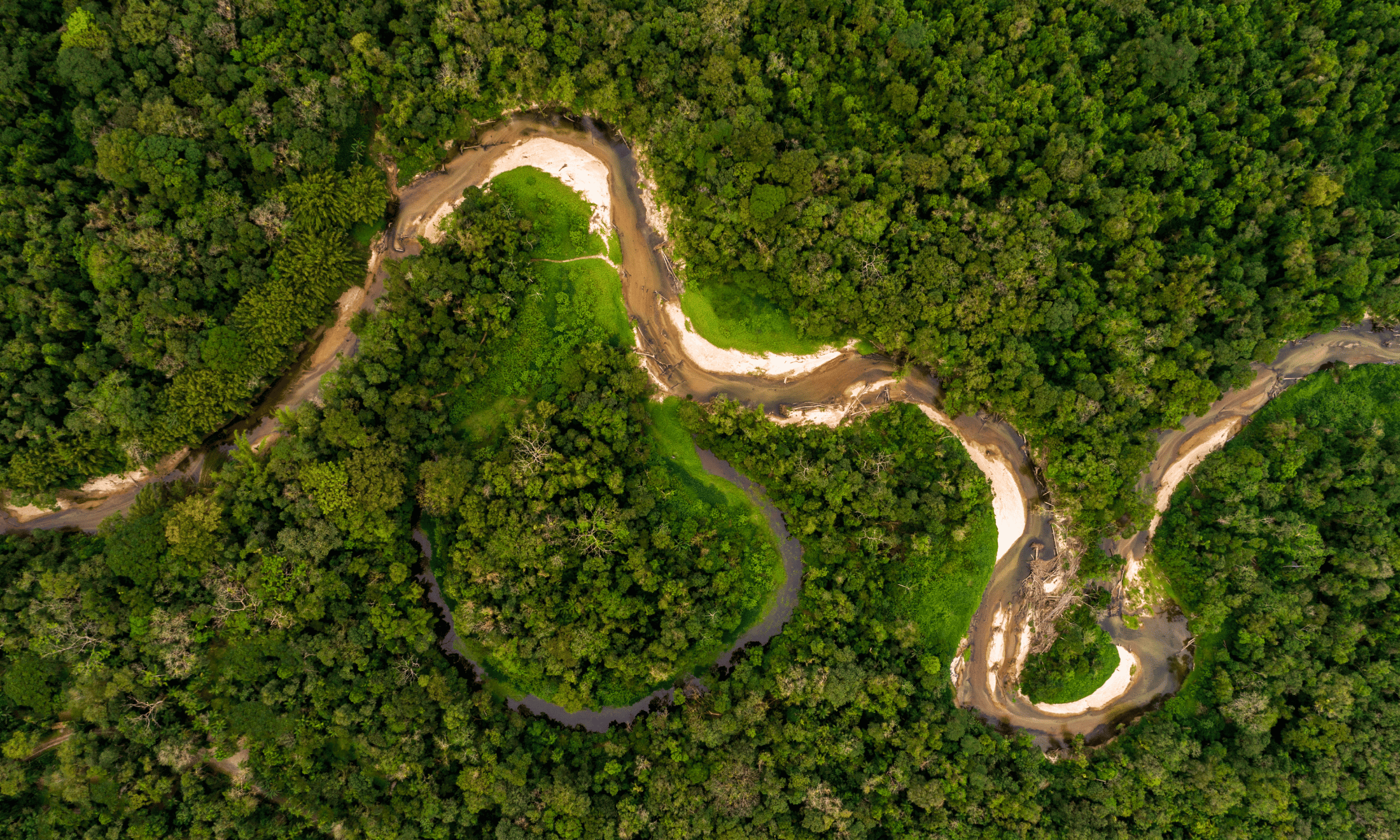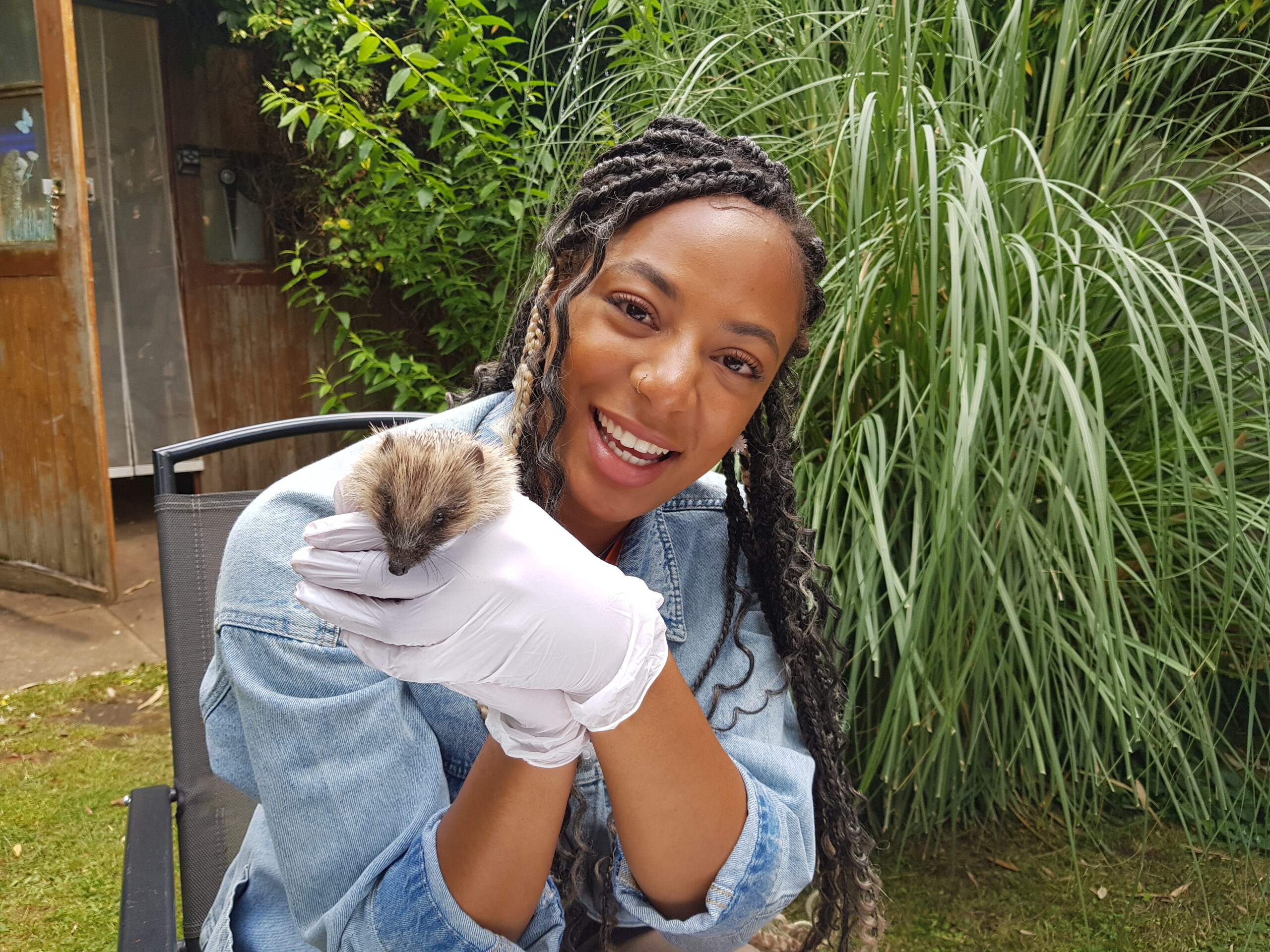
For two weeks in November the world gathered in Bonn for an international meeting – the UN Climate Change Conference (COP23) – to determine how the Paris Agreement will be implemented. I talked to Jade Begay from Indigenous Rising Media to find out about the outcomes of the talks and the role of the media in the fight for environmental justice.
Jade Begay is a Dine and Tewa woman from the Southwest region of Turtle Island. She is a multimedia artist, a digital storyteller, media strategist, and filmmaker and producer of Indigenous Rising Media (IRM). She recently covered the Standing Rock movement for IRM and a global audience.
gal-dem: What brought you to COP23 and who did you travel here with?
Jade Begay: I travelled with the It Takes Roots [COP23] Delegation, which brings together three game-changing groups: the Indigenous Environmental Network, Global Grassroots Justice Alliance, and the Climate Justice Alliance. Each of these organisations [do] amazing intersectional work, creating bridges between environmental, climate, gender, housing, and food justice movements.
I am here to support and amplify the voices of my friends and colleagues and the communities we come from. I’ve learned while being at the Climate Talks that if your community doesn’t show up to have a seat at the table, you don’t exist. And even if you do show up, you enter a space that silences you, that puts you into this “radical” category for wanting basic rights acknowledged in the agreement and for wanting meaningful systems change.
I know people back home criticise our participation in these types of UN spaces, because progress can be so slow-moving, and perhaps our efforts are better spent working locally. However, I think it’s important to show up on both levels: the international/national level and the local/grassroots level.
Our delegation were here advocating for solutions that balance “green capitalism” [which is] based on community input and knowledge. It’s critical that these voices are present in these meetings otherwise there is no pushback on the governments, corporations [and] media who are pushing false solutions to the climate crisis.
The goal of the Bonn climate talks was to figure out how to implement the Paris Climate Agreement. How did that go?
The Paris Accord is going to be implemented through carbon markets – the ability for companies to purchase additional permits to cover the excess when they exceed their carbon emissions cap. Spoiler alert, it’s not going to solve the problem. It’s not going to keep sea levels from rising, and it’s not going lower the temperatures across the globe. Carbon markets only allow big polluters, these countries and corporations who emit the most emissions, to continue doing what they’ve always been doing and buy out their way out through carbon credits.
This is precisely why indigenous peoples, traditional ecological knowledge and grassroots solutions are critical to the mitigation and adaptation to climate change. Solutions that are based in traditional knowledge are solutions that come from a deep understanding and an ancient relationship with nature. Indigenous peoples have held onto this knowledge despite hundreds of years of colonisation and they are the true caretakers and stewards of their lands, this why we show up to these COPs, to tell decision makers that we are the ones who know how to maintain ecological balance and the most important action needed now is to stop all new fossil fuel development.
What is happening back home for you in your community and why does it spur you on with your work?
Where I come from, New Mexico, climate change is impacting my community with more drought, more frequent wildfires, and warmer seasons which lead to more pollen and mold throughout the year – therefore people, including myself and my family are experiencing more severe allergies and sinus problems. Agriculture is also impacted; the winters are more and more unpredictable so our crops are sometimes lost because a frost will come while plants blooming. As a community that depends on farming, traditional medicines and food, these changes have a serious impact on the livelihoods and cultures of many people.
In addition, my community is facing oppressive impacts by the coal industry, fracking, and uranium mining. In fact, one of my culture’s most sacred places, Chaco Canyon, an ancient city where my ancestors developed astrological technology and trading systems, is threatened not only by fracking but also by the Trump Administration, as Trump recently withdrew from UNESCO. Beyond the harm fracking and more fossil fuel extraction would have on our culture, it would further pollute this region which is already suffering from incredible uranium and methane pollution.
How does climate change, natural disasters, hurricanes, and extreme weather events already impact your communities?
This past year has been the most depressing year of travel and work of my professional career. I began my year in Standing Rock – I spent 6 months covering the movement – which was just so devastating because here we had indigenous peoples taking a stand for their inherent rights and also for humanity and they were met with war weapons treated like terrorists on the land they’ve lived for time immemorial. Then I went to the Gulf of Mexico, only to find the same company that built DAPL, was building another pipeline that again puts indigenous peoples of this region, who happen to be the first climate refugees in the United States, at grave danger.
As the year went on these trips to various places to document indigenous and frontline stories became more and more dangerous: in Houston after Hurricane Harvey my team and I literally packed gas masks in our suitcases and were told do not drink the local water because the city was so contaminated by chemical spills. Then I went to California and it was a similar situation; gas masks were recommended because air was not safe to breathe due to historic wildfires that overwhelmed the region. What I am seeing and experiencing is that our communities are quickly and more frequently becoming disaster zones and these communities which are predominantly black, brown and low income, are being hit first and worst and because of the long history environmental racism there’s no help for them.
What is the role of the media in these climate negotiations?
Just a few days ago, a non-native reporter for the Guardian published an article which claimed that “Indigenous Groups Won Greater Recognition” at COP23. While it’s true that Governments stood on a podium and said “we recognise you”, it does not mean that there is any kind of promise being made. In fact, COP23 ended without indigenous rights being included in the Paris Agreement in any significant way. Unfortunately, this Guardian article will make its way through the world and people will believe that some kind of victory has been made but in reality that is far from the truth. This is why we need Indigenous Rising and vetted reporters covering these issues, because the mainstream is, for lack of a better word, lazy and will take anyone’s opinion as truth. This article in particular only quotes people from an initiative sponsored by the Ford Foundation, a group that is invested in carbon offsetting, the very false solution which grassroots communities are fighting against.
The fact of the matter is that as indigenous peoples, as colonized peoples, we’ve had our story told for us for far too long and when it comes to issues that absolutely impact our lives, we need to be in control of our narrative. This issue came up a lot while I worked in Standing Rock: all too often would non-native journalists come to Standing Rock with an “extractive agenda” [without putting] in the time nor the sincere research to tell a complete story. So when their story was finished, all it was, was gossip, not the truth.
How can we make better links between you, grassroots movements back home and the POC communities who are engaged in climate justice work?
I think we need to start with the basics: learn more about climate change. Then learn about carbon markets, read this report. Then support communities not big NGOs, not big environmental groups – often times those groups are stealing resources and attention from the people doing the real work, so this holiday season when you’re trying to make donations, dig deep for the grassroots groups. And as always, make space for indigenous peoples to have their voices heard. If you work for a media or news company, get indigenous writers/producers on that team. If you work at an environmental or climate justice organization get indigenous people on your team, and one or two at a junior position or on contract doesn’t count, I mean half a dozen native folks in leadership and junior roles full time!
Follow Indigenous Rising Media on Facebook, Twitter and Instagram

Britain’s policing was built on racism. Abolition is unavoidable

How Pakistan’s Khwaja Sira and transgender communities are fearing and fighting for their futures

Their anti-rape performance went viral globally. Now what?






